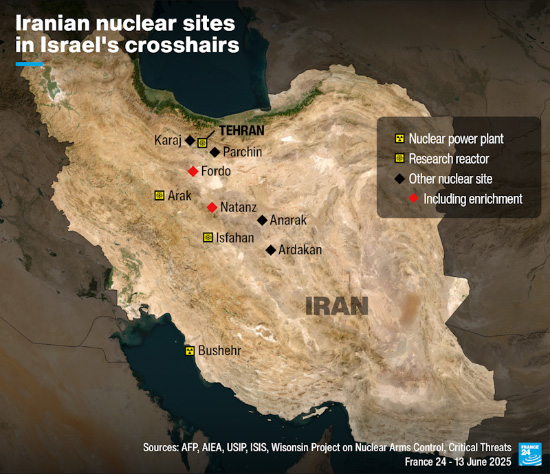
Israel's stunning and sprawling operation targeting Iran's nuclear facilities, missile sites, scientists and generals followed eight months of intensive clandestine preparations, AXIOS stresses.
Why it matters: The operation launched a new war in the Middle East that could draw in the U.S., demolished any hopes of a nuclear deal, and dealt arguably the biggest single blow to the Iranian regime since the 1979 revolution. And it is only just beginning.
Driving the news: Israel is attempting to "eliminate" Iran's nuclear and ballistic missile capabilities in an operation expected to last at least several days, Prime Minister Benjamin Netanyahu announced. Other Israeli officials said it could take weeks.
Israel attempted — just in the opening hours — to assassinate nuclear scientists it claims had the know-how to make a nuclear bomb. Around 25 scientists were targeted and at least two are confirmed dead so far.
Israel also targeted the entire top brass of Iran's military. The commander of the Revolutionary Guard and military chief of staff were both confirmed dead, along with another senior general.
The Israeli operation didn't just include air strikes. Israel's Mossad intelligence service has operatives on the ground conducting covert sabotage operations on missile and air defense sites, officials said.
Behind the scenes: The idea for an operation simultaneously targeting Iran's missile and nuclear programs — which Netanyahu has described as existential threats to Israel — took hold after Iran struck Israel in October, during a cycle of tit-for-tat escalation between the countries.
Motivated both by Iran's fast-growing missile arsenal and its weakened air defenses following Israel's retaliation, Netanyahu ordered the military and intelligence services to begin planning.
The Israeli military said another factor was intelligence about nuclear weaponization research and development that indicated Iran could build a bomb more quickly if it elected to do so.
The planned opening in the coming weeks of a new underground enrichment facility that would be immune to even massive U.S. bunker busters added to the urgency.
Friction point: Even as President Trump pursued a nuclear deal, Israel was preparing for this strike — gathering intelligence, positioning assets and eventually conducting drills.
Those preparations alarmed some in the White House, who worried Netanyahu might move even without a green light from Trump.
Netanyahu assured Trump he wouldn't. The White House, for its part, told Netanyahu that if Israel attacked Iran, it would do so alone.
Trump himself said several times in recent days, including several hours before the strikes, that he opposed an Israeli strike that could "blow up" the negotiations.
The intrigue: But in the hours after the attack began, Israeli officials briefed reporters that this was all coordinated with Washington.
Two Israeli officials claimed to Axios that Trump and his aides were only pretending to oppose an Israeli attack in public — and didn't express opposition in private. "We had a clear U.S. green light," one claimed.
The goal, they say, was to convince Iran that no attack was imminent and make sure Iranians on Israel's target list wouldn't move to new locations.
Netanyahu's aides even briefed Israeli reporters that Trump had tried to put the brakes on an Israeli strike in a call on Monday, when in reality the call dealt with coordination ahead of the attack, Israeli officials now say.
State of play: The U.S. side has not confirmed any of that. In the hours before and after the strike, the Trump administration distanced itself from the Israeli operation in public statements and private messages to allies.
Secretary of State Marco Rubio swiftly stated that Israel's attack was "unilateral" with no U.S. involvement.
Hours later, Trump confirmed he knew the attack was coming but stressed the U.S. had no military involvement.
What to watch: Israel is now bracing for Iran to unleash hundreds of ballistic missiles and drones toward Israel, and perhaps also U.S. bases in the region.
Iranian officials threatened on Friday that their response will be aimed at the U.S. too.
read more in our Telegram-channel https://t.me/The_International_Affairs

 10:31 14.06.2025 •
10:31 14.06.2025 •






















